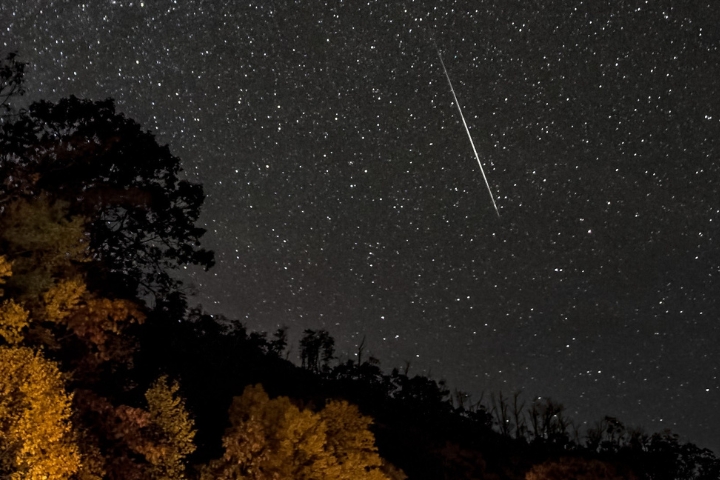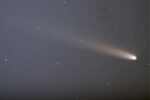The yearly exhibition of the Orionids meteor shower, which is linked to the remains of Halley’s Comet, has officially begun. This celestial event, which takes place between September 26 and November 22, 2024, gives astronomers the opportunity to see shooting stars when Earth travels through the comet’s debris. Fans are urged to get ready for an enthralling night sky experience as the prime viewing dates get near.
Understanding the Orionids
The particles that come from Halley’s Comet (1P/Halley), which last passed close to Earth in 1986 and is predicted to return in 2061, are what create the Orionids. These minuscule pieces burn up as they approach our atmosphere as Earth moves through the comet’s debris trail, producing breathtaking meteors that are visible from space. During its peak, the meteor shower usually produces about 20 meteors per hour, although under ideal circumstances, rates have been seen to surge to as high as 50 to 75 meteors per hour in certain years. The peak of this year is expected to occur during the night of October 20 and the early hours of October 21, which makes it the perfect time for viewers to gaze up into the sky.
Viewing Tips for Stargazers
Take into consideration some crucial viewing suggestions to increase your chances of seeing the Orionids in all their splendor:
- Find a Dark Location: Escape urban light pollution by seeking out areas far from city lights. International Dark Sky Parks are excellent choices for optimal visibility.
- Choose an Unobstructed View: Select a location with a clear line of sight to the night sky, avoiding obstructions such as trees or buildings.
- Avoid Telescopes and Binoculars: These instruments can limit your field of view and make it harder to spot meteors. Instead, lie back and take in as much of the sky as possible.
- Allow Your Eyes to Adjust: Give your eyes about 30 minutes to adapt to the darkness for better visibility of faint meteors.
- Dress Warmly: Nights can be chilly during this time of year, so ensure you are dressed appropriately for comfort while stargazing.
Stargazers worldwide are encouraged to take part in this amazing astronomical event associated with one of the most well-known comets in history as the Orionids meteor shower develops over the next few weeks.




GIPHY App Key not set. Please check settings